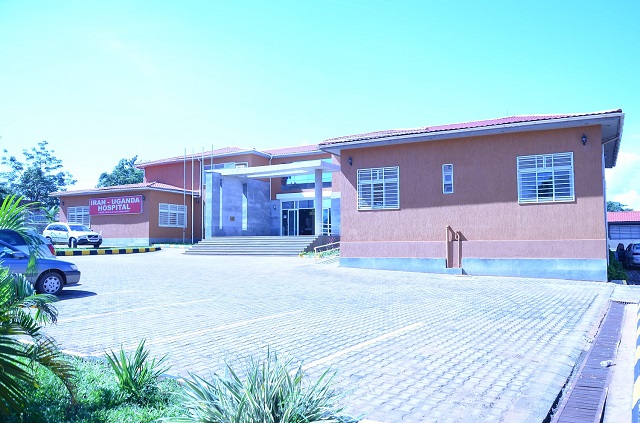
Kampala, Uganda | THE INDEPENDENT | Several senior and junior officers have complained about the high charges at the Iran-Uganda Friendship Hospital, Naguru.
Some police officers who preferred anonymity to speak freely said they have since deserted the hospital which they thought would offer subsidized medical charges.
A senior police officer who preferred anonymity said he once went to the hospital for treatment but was shocked when the bill was presented to him.
“I looked at the bill and I decided to explain to the management that I’m a police officer but they told me they had already given me a discount. I paid the money but I now fear going there. The charges are not the ones we’re promised,” a senior police officer said.
Iran-Uganda hospital was constructed by the government of Iran following a Memorandum of Understanding signed with Uganda Police Force when Kale Kayihura, was the Inspector General of Police.
Gen Kayihura told journalists at police headquarters in 2016 that the hospital was going to offer both general and specialized treatment.
Kayihura added that police officers and their families were going to be the first beneficiaries.
The then-police chief said police officers regardless of their ranks were to get subsidized treatment which he said was going to be extremely cheaper compared to other private hospitals.
A police constable said once they get sick, they ask their colleagues to rush them to Nsambya police barracks even when Iran-Uganda hospital is near them.
“Even when it’s midnight at least I asked our commander to take me to Nsambya police barracks health centre. That is where we belong and it’s what we can afford,” a policeman said.
Dr Moses Byaruhanga, the Director Medical Services Uganda Police admits that the costs are a bit high but there is a discount given to policemen and policewomen.
Dr Byaruhanga said both senior and junior police officers do not feel the discount because they had different expectations of what the hospital was going to charge.
“The officers have different expectations when it comes to charges. If someone’s bill is 300,000 shillings and he is told to pay like 270,000, he feels nothing has been deducted. They want if the bill is 300,000 shillings they pay at least 150,000 shillings,” Dr Byaruhanga said.
Although the police force has 428 medical personnel, Dr Byaruhanga said no one is attached to Iran -Uganda hospital.
Nevertheless, Dr Byaruhanga said police leadership have been holding meetings with the hospital management to sort out some issues.
“Yes that hospital is on police land but it’s currently not in hands of police institution. That hospital is for the government although it was built through a partnership between police and Iran government,” Dr Byaruhanga said.
Dr Byaruhanga said after engagement with the hospital administration, things regarding charges would somehow change.
Police officers according to Dr Byaruhanga should utilize police health amenities that are in almost every barracks, station and division.
******
URN
 The Independent Uganda: You get the Truth we Pay the Price
The Independent Uganda: You get the Truth we Pay the Price


